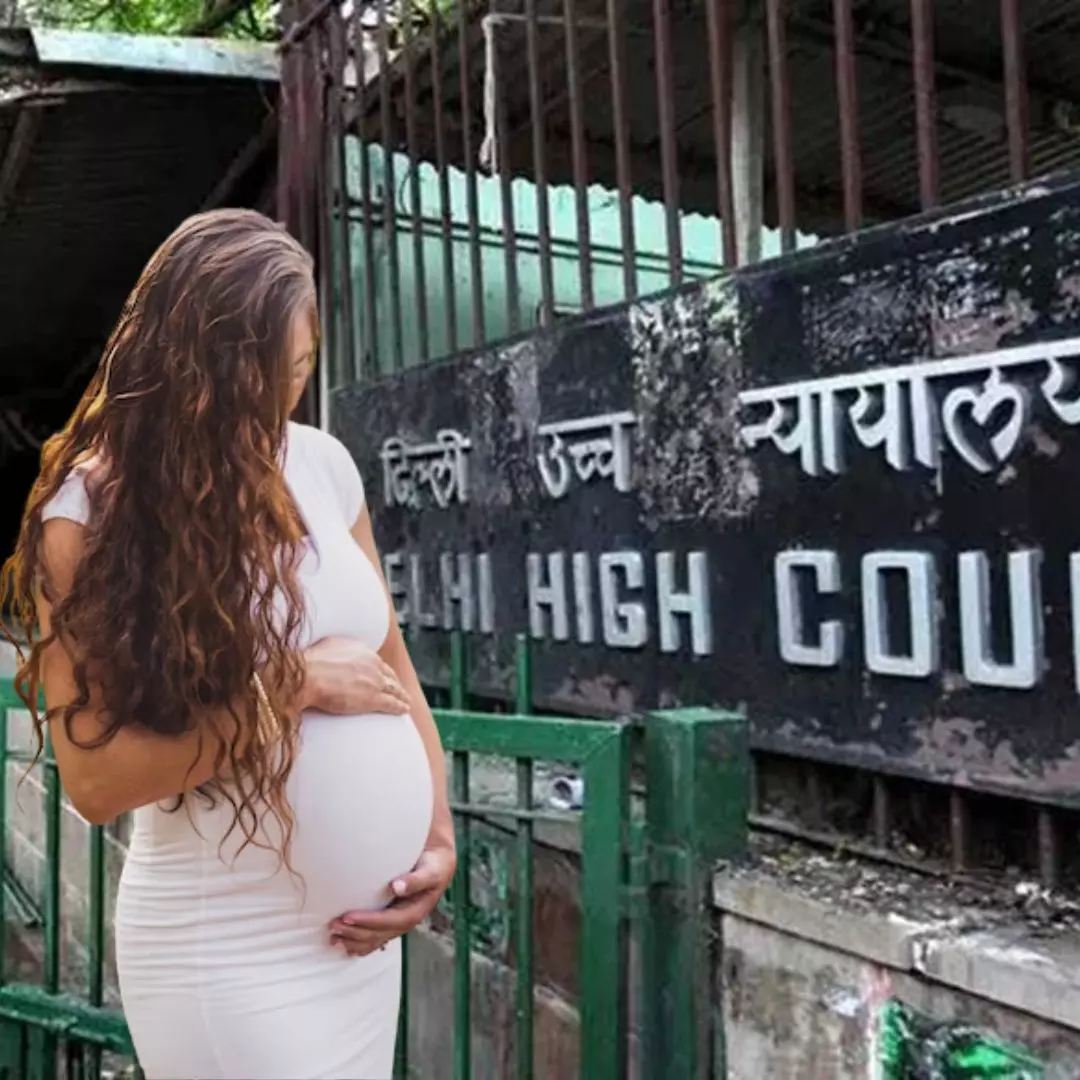
Image Credit- The Indian Express, Unsplash (Representational)
Delhi High Court Issues New Instructions For Rape Victims Whose Pregnancy Exceeds 24 Weeks
Writer: Navneet Nishant
I am a Media Student currently pursuing Master's in Mass Communication From Central University Of Jharkhand, I have done my previous internship In Jharkhand state livelihood promotion society as KMC intern.
Delhi, 27 Jan 2023 12:09 PM GMT
Editor : Shiva Chaudhary |
A post-graduate in Journalism and Mass Communication with relevant skills, specialising in content editing & writing. I believe in the precise dissemination of information based on facts to the public.
Creatives : Shiva Chaudhary
A post-graduate in Journalism and Mass Communication with relevant skills, specialising in content editing & writing. I believe in the precise dissemination of information based on facts to the public.
The High Court mandated that all sexual assault victims' medical examinations include an obligatory urine pregnancy test. The High Court decided in response to a petition filed by a young girl who had been raped when she was just 14.
The Delhi High Court has provided directions for investigating officers in all situations when a victim is pregnant as a result of sexual assault, and the pregnancy is beyond 24 weeks. This significant decision allows a child rape victim to terminate her 25-week pregnancy.
In its ruling, the High Court mandated that all sexual assault victims' medical examinations include an obligatory urine pregnancy test. The investigating officer will see that the victim is brought before a medical board in any of the four government hospitals in the capital on the same day if the victim is discovered to be pregnant and requests to have the pregnancy medically terminated.
For some particular categories, such as rape survivors, incest victims, and other differently abled women and minors, abortion is allowed till 24 weeks as per Indian laws.
Justice Swarana Kanta Sharma stated in a judgment passed on January 25 that in case a child victim is evaluated by such Board, a relevant report will be presented before concerned authorities so that if an order is being sought about pregnancy termination from the Courts, the court involved does not lose any more time and is in a position to give an order on the same quickly.
Boards Are Not Available
The judge pointed out that not all hospitals have such boards, which is inconvenient for the investigating police and victims who need medical termination or additional assessment. She gave the Delhi government instructions to ensure that these boards are established in every public hospital per the Medical Termination of Pregnancy (MTP) Act.
The High Court decided in response to a petition filed by a young girl who had been raped and wanted to use the MTP Act to get consent to end her pregnancy medically. When the child was 14, she was sexually abused and raped in September 2022. She missed her period for four months, but at first, she didn't tell her mother because she was too afraid. The girl told her mother about the sexual assault once the physical changes started appearing.
Background Of Judgement
An FIR was filed earlier this month at the Shalimar Bagh police station in New Delhi on behalf of the girl, and her parents, who are both employed as watchmen at construction sites, discovered that the girl had been pregnant for 24 weeks and five days when she sought a medical examination on January 19.
The child welfare committee was contacted by the investigating officer in the case on January 20, and as a result, the youngster and her mother were brought before a medical board. They declared that they did not want to carry the pregnancy any further. However, the victim was instructed to approach the High Court because her pregnancy exceeded the gestational age restriction for medical termination under the MTP Act.
Social Environment After Trauma Is Crucial
According to Justice Sharma, unwanted pregnancy would undoubtedly affect the victim's mental health, given the social, financial, and other issues that are immediately connected with the pregnancy. As a result, the judge permitted the girl to abort the baby.
Justice Sharma ordered the Delhi Police to ensure that after the medical termination of the pregnancy and the period of rest advised by doctors is completed, the victim is admitted to a nearby government school. This ensures that the victim is freed from the trauma of an unwanted pregnancy brought on by sexual assault and can lead a meaningful life that is not constrained by her poverty.
Justice Sharma stated, "Poverty has its own multi-dimensions, and poverty has its own jurisprudence too. A judge cannot separate herself from the social contexts in which a crime is committed, and a victim suffers," as reported by The Hindu.
The court said that this case illustrates how one horrific incident can completely transform a family's existence, leaving them fighting to provide for their children while simultaneously dealing with the pain of having a young daughter become pregnant after a sexual assault.
Also Read: Kerala's Republic Day Tableau Icon Karthyayani Amma Struggles To Make Ends Meet At Age Of 100
 All section
All section













